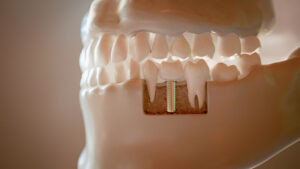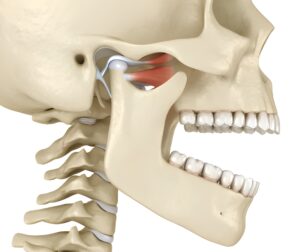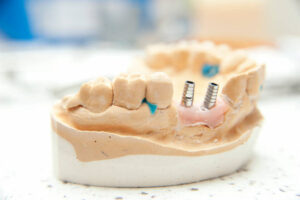Summary
Living with TMJ or temporomandibular joint disorder can make everyday activities like talking, chewing, or even smiling feel uncomfortable.
This affects the jaw joint and surrounding muscles, often causing jaw pain, stiffness, headaches, or a popping sound when you move your mouth. It is estimated that over 10 million Americans are affected by TMJ disorders each year.
While getting a proper diagnosis and treatment from a professional is important, there are simple and safe ways you can ease the discomfort at home. Here, we will cover:
- Gentle jaw exercises to improve flexibility
- Warm and cold compress techniques
- Relaxation methods to reduce jaw tension
With the right approach, managing TMJ symptoms can become a little easier, one small change at a time.
Understanding TMJ Pain
The temporomandibular joint (TMJ) is the small but powerful hinge connecting your jaw to your skull. It’s what allows you to talk, chew, yawn, and move your jaw smoothly. When this joint or the surrounding muscles are strained, it can lead to TMJ pain. Common causes include:
- Stress (leading to jaw clenching)
- Teeth grinding (often at night)
- Injury to the jaw
- Arthritis affecting the joint
- Poor posture that strains neck and jaw muscles
Common Symptoms to Watch For
TMJ issues can show up as jaw clicking or popping, muscle stiffness, headaches, earaches, or even pain when chewing.
Why Early Attention Matters
Ignoring these signs can lead to worsening discomfort and long-term damage. Recognizing them early means you can get help sooner. Searching for a TMJ dentist in Killeen Texas is a great first step.
A Note on Self-Care
Gentle jaw stretches, relaxation techniques, and avoiding hard foods can help, but these are complements, not replacements, for professional treatment.
Home Remedies and Self-Care Techniques
Living with jaw pain can be frustrating, but there are a few simple things you can do at home to feel better. Here are some easy, practical ideas you can start today.
A. Hot and Cold Compresses
Heat and cold can work wonders for jaw discomfort.
- Heat helps relax tight jaw muscles, making it easier to move your mouth.
- Cold reduces swelling and numbs sharp pain.
How to use:
- Apply a warm (not hot) towel or heating pad for 10–15 minutes.
- Switch to a cold pack wrapped in a thin cloth for 5–10 minutes.
- Always give your skin a break between applications to avoid burns or frostbite.
B. Gentle Jaw Exercises
Light stretches can help keep your jaw from getting stiff.
- Slowly open and close your mouth without forcing it.
- Move your jaw gently from side to side.
- Try small circular motions to loosen tight spots.
Stop if you feel sharp pain. Overdoing exercises can make things worse. Start small and be consistent.
C. Stress Reduction Practices
Stress often leads to clenching or grinding your teeth, which can strain your jaw.
- Practice deep breathing, inhale slowly, exhale fully.
- Try mindfulness or meditation for relaxation.
- Light yoga stretches can calm both your mind and body.
If you’re in Killeen, you can check out local options like yoga studios, meditation classes, or even community wellness programs that focus on stress relief.
D. Dietary Adjustments
Your diet can play a big role in how your jaw feels.
- Stick to soft foods like smoothies, soups, or mashed vegetables during flare-ups.
- Avoid chewy, sticky, or hard foods that strain your jaw.
- Drink plenty of water and include anti-inflammatory foods like leafy greens, berries, and salmon.
E. Good Posture and Ergonomics
Poor posture can put extra pressure on your jaw muscles.
- Keep your neck and back aligned while sitting.
- Adjust your desk setup so your screen is at eye level.
- When sleeping, use a pillow that supports your head and neck.
Even small posture changes can help reduce jaw tension over time.
F. Massage and Physical Therapy
A gentle massage can help ease tight jaw muscles and improve blood flow, reducing discomfort. You can try:
- Using your fingertips to apply light pressure in small circles along your jawline, temples, and just in front of your ears.
- Massaging your neck and shoulders, as tension in these areas can contribute to jaw pain.
- Combining massage with a warm compress for deeper muscle relaxation.
If your pain is persistent, consider working with a physical therapist who specializes in jaw disorders. They can teach you targeted exercises, help you improve posture, and use hands-on techniques to reduce stiffness.
When to See a Professional
Sometimes, TMJ discomfort can improve with home remedies, but certain symptoms mean it’s time to seek expert help.
Warning Signs You Shouldn’t Ignore
- Persistent or worsening jaw pain that doesn’t go away
- Jaw locking or difficulty opening and closing your mouth
- Frequent or severe headaches connected to jaw movement
- Clicking or popping sounds that become painful over time
Why Early Help Matters
Visiting experienced dentists in Killeen, Texas, or a TMJ specialist early can save you from long-term complications. Early treatment can:
- Reduce pain before it becomes chronic
- Prevent joint damage
- Improve jaw function and comfort
Take Action Sooner Rather Than Later
If these symptoms sound familiar, don’t wait. The sooner you get checked, the sooner you can find relief and protect oral health with smile makeovers for the future.
Preventive Tips for Long-Term Relief
Keeping jaw discomfort away for good means making small but consistent changes in your daily habits. Here are some simple ways to protect your jaw and enjoy lasting comfort.
1. Do Regular Jaw Relaxation Checks
Pause a few times during the day to notice if your jaw feels tense. Gently unclench your teeth, relax your face, and let your jaw rest in its natural position.
2. Use a Night Guard if You Grind Your Teeth
If you tend to grind or clench at night, your dentist in Killeen may recommend a custom night guard. This simple device helps prevent extra strain and protects your teeth from wear.
3. Manage Stress Consistently
Stress often shows up in the jaw. Try daily relaxation methods like deep breathing, gentle stretching, or a short walk to keep tension in check.
4. Stay on Top of Dental Checkups
Regular visits to your dentist in Killeen help catch early signs of jaw issues before they become bigger problems.
Small habits like these can make a big difference in keeping your jaw healthy and pain-free.
Takeaway
- Simple home remedies, such as warm/cold compresses, gentle jaw stretches, and posture adjustments, can help alleviate TMJ discomfort and enhance daily comfort.
- Stress management, soft food choices, and regular jaw relaxation checks are essential for preventing flare-ups.
- Contact Killeen Dental Group TMJ specialist for early professional care can stop symptoms from worsening and protect long-term jaw health.









